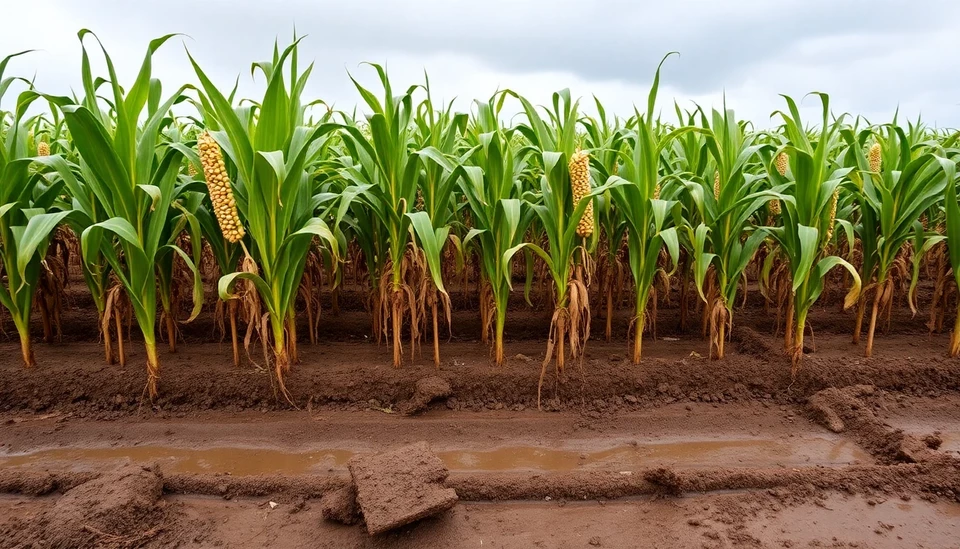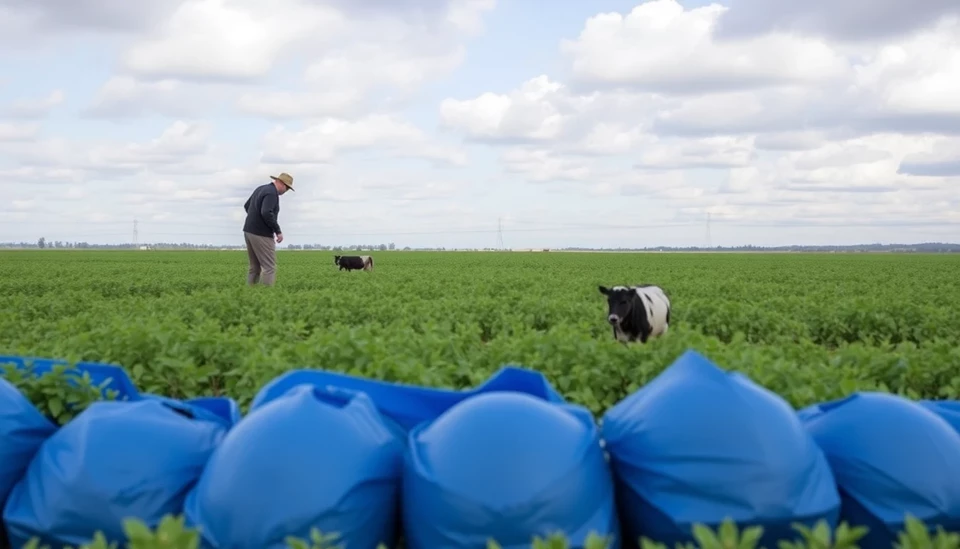
The agricultural landscape of Argentina, one of the world's largest soybean and corn producers, is facing a significant challenge as rainfall becomes increasingly scarce. Recent reports indicate that inadequate rainfall is taking a heavy toll on crops that are crucial to both local and global markets. This worrying trend is set against a backdrop of climate change and extreme weather patterns, which have left farmers grappling with unexpected drought conditions that threaten their livelihoods.
With the current harvest season underway, farmers across the Pampas region—home to major agricultural investments—are expressing deep concern over the lack of precipitation. Analysts suggest that the absence of rainfall during a critical growing phase has the potential to severely impact yield predictions for both soybean and corn crops this year. The implications of these losses are far-reaching, affecting everything from local economies to global commodity prices.
Experts predict that if the dry conditions persist, it could lead to a catastrophic decline in Argentina's agricultural output. In previous years, Argentina has seen bountiful harvests, but the persistent dry spells challenge that trend. The country's significant role in global agricultural supply chains means any reductions in production could lead to price increases that resonate around the world, particularly affecting countries that rely heavily on imports of soybeans and corn from Argentina.
The current agricultural dynamics also reflect the broader complications arising out of climate change. As temperatures rise and precipitation becomes less predictable, farmers are urged to adapt their practices. Some are turning to drought-resistant crop varieties, while others are exploring more sustainable farming practices to preserve resources and mitigate the impacts of a changing climate.
Additionally, government officials and agricultural analysts are monitoring the situation closely, assessing the potential for intervention. There are discussions about possible incentives for farmers to adopt more resilient agricultural practices as well as economic support measures to help those impacted by the drought. However, as the situation unfolds, the response needs to be swift and effective to ensure that the agricultural sector is protected from the full brunt of these adverse weather conditions.
The urgency of this situation necessitates immediate action. With significant geopolitical implications, the agricultural crisis unfolding in Argentina could have a ripple effect across global markets. Stakeholders, including exporters and importers alike, are preparing for potential disruptions, as farmers plead for more favorable weather conditions to preserve their harvests.
As the dry spell extends, the future of Argentina's agricultural success hangs in the balance. Farmers remain hopeful that timely rainfall will bring much-needed relief, but with predictions of continued dryness, the risk for a farming disaster looms large.
In conclusion, the rainfall deficits impacting Argentina's agriculture not only threaten the livelihoods of farmers but could also reshape global commodity markets. The coming months will be critical in determining the scale of the damage and the response from both government and agricultural organizations to manage these challenges effectively.
<>#> #Argentina #Agriculture #Soybeans #Corn #ClimateChange #Drought #Farmers #GlobalMarkets #CommodityPrices #FoodSecurity #<
Author: Sophie Bennett




